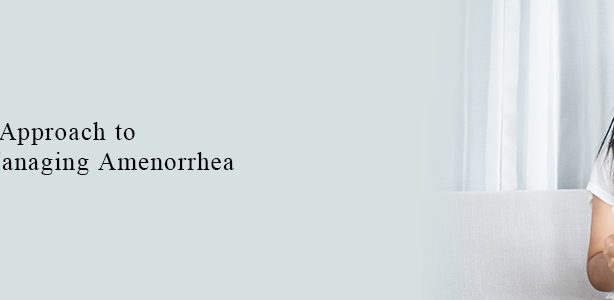Dandruff is an annoying and embarrassing problem, causing discomfort and self-consciousness for many individuals. Says V.C. Ajith Kumar, Director and Principal Ayruvedic Consultant at Ayurveda Singapore, “While there are numerous commercial products available, sometimes the best solutions can be found in ancient wisdom.” Ayurveda, an ancient Indian system of medicine, offers holistic approaches to treating various health issues, including dandruff.
Understanding dandruff in Ayurveda
According to Ayurveda Consultant at Ayurveda Singapore dandruff is associated with an imbalance in the Kapha and Vata doshas. The accumulation of excess Kapha in the scalp leads to flakiness and itching, while Vata imbalance can cause dryness and roughness of the scalp. Ayurvedic Consultant at Ayurvedic Singapore emphasizes the importance of balancing these doshas for optimal health, which includes maintaining a healthy scalp.
Ayurvedic management of dandruff
Neem (Azadirachta indica)
Ayurveda Consultant at Ayurveda Singapore says, “Neem is a powerful herb known for its antibacterial, antifungal, and anti inflammatory properties. It has been used for centuries in Ayurvedic medicine to treat various skin conditions, including dandruff. You can create a neem paste by grinding neem leaves with water and applying it to your scalp. Leave it on for about 30 minutes before rinsing it off.”
Amla (Emblica officinalis)
Ayurvedic Consultant at Ayurvedic Singapore vouches for the power of amla. He says, “Amla, also known as Indian gooseberry, is rich in vitamin C and has potent antimicrobial properties. It nourishes the scalp and helps maintain a healthy pH balance, which is crucial for preventing dandruff. You can apply amla juice or a paste made from dried amla powder to your scalp, leaving it on for at least 20-30 minutes before washing it off.”
Tulsi (Ocimum sanctum)
Tulsi, or holy basil, is known for its antimicrobial and anti inflammatory properties. Ayurveda Consultant at Ayurveda Singapore says, “It can soothe an itchy scalp and support healthy hair growth. Crush tulsi leaves and mix them with coconut or sesame oil. Apply the mixture to your scalp. Let it stay for about 30 minutes before washing it off.”
Fenugreek (Trigonella foenum-graecum)
According to Ayurvedic Consultant at Ayurvedic Singapore, “Fenugreek seeds are a good
source of proteins and nicotinic acid, which are essential for hair health.” He suggests, “Soak fenugreek seeds overnight and make them into a paste. Apply the paste to scalp and leave it on for about 30 minutes before rinsing it off. Regular use can help control dandruff effectively.”
source of proteins and nicotinic acid, which are essential for hair health.” He suggests, “Soak fenugreek seeds overnight and make them into a paste. Apply the paste to scalp and leave it on for about 30 minutes before rinsing it off. Regular use can help control dandruff effectively.”
Aloe vera
Ayurveda Consultant at Ayurveda Singapore recommends aloe vera as it is renowned for its soothing and moisturizing properties. It reduces inflammation and supports a healthy scalp environment. Apply fresh aloe vera gel directly to your scalp and leave it on for at least 30 minutes before washing it off.
Yogurt and lemon
Ayurvedic Consultant at Ayurvedic Singapore, yogurt and lemon is an excellent combination for dandruff. “The probiotics in yogurt help balance the scalp’s microbiome, while lemon’s acidic properties help control excess oil and dandruff. Mix equal parts of yogurt and lemon juice and apply it to your scalp. Leave it on for about 30 minutes before rinsing,” he says.
Sesame oil
Ayurveda Consultant at Ayurveda Singapore says, “Massaging your scalp with warm sesame oil improves blood circulation and nourishes the hair follicles. It helps balance the Vata dosha and prevents dryness, a common cause of dandruff. Warm the sesame oil slightly and massage it into your scalp in gentle, circular motions. Leave it on for at least an hour or overnight before washing it off.”
An Ayurvedic practioner will approach dandruff treatment through a holistic lens, taking into consideration not just the symptoms but also the underlying imbalances in the body. Here’s what you can expect from an Ayurvedic consultant for dandruff treatment:
Assessment of Dosha Imbalance: The Ayurvedic consultant will start with a comprehensive assessment of the person’s overall health, including factors like diet, lifestyle, stress levels, and any existing health conditions. They will also evaluate your Prakriti (basic constitution) and Vikriti (current state of balance or imbalance) to determine which dosha or combination of doshas (Vata, Pitta, Kapha) may be contributing to your dandruff.
Based on the dosha assessment, the Ayurveda consultant will provide dietary recommendations to help balance your specific dosha imbalance. Depending on the severity of the dandruff and the individual’s constitution, the Ayurvedic consultant may recommend specific Ayurvedic, which are designed to balance the doshas and promote overall well-being.
The Ayurvedic consultant at Ayurvedic Singapore will provide guidance on how to integrate these recommendations into your daily routine and will monitor your progress over time.



